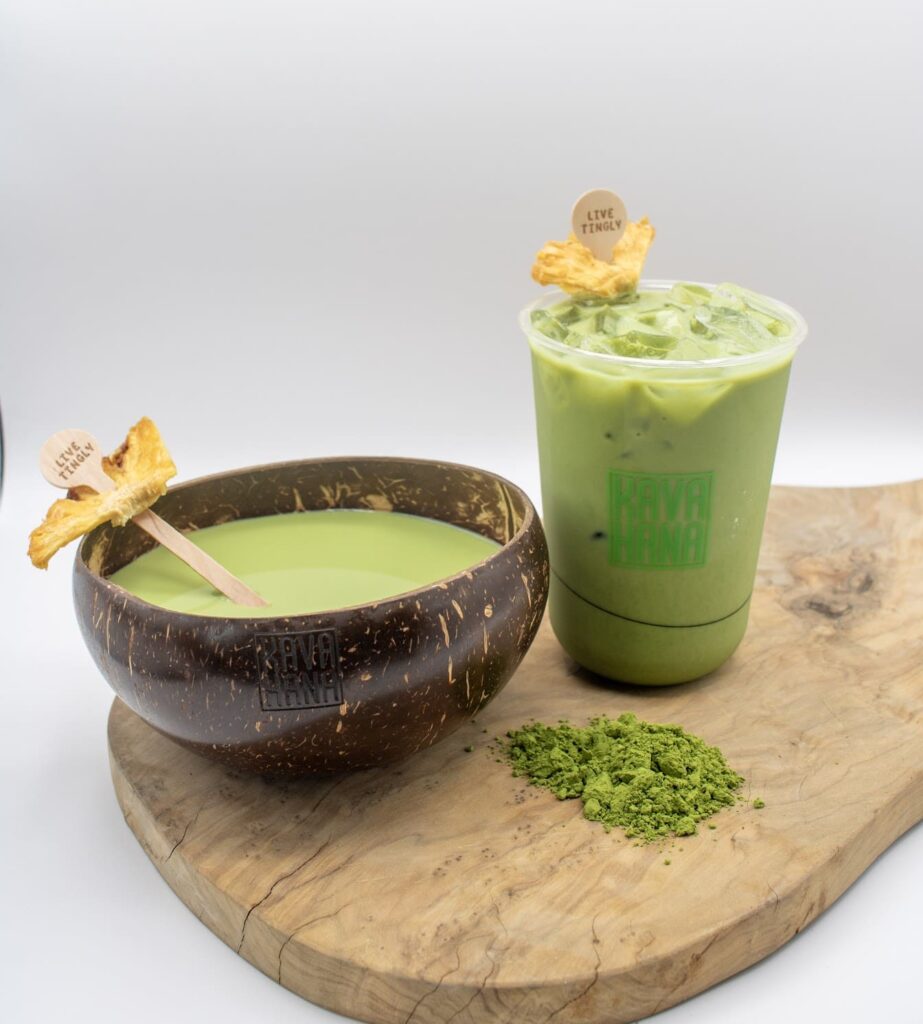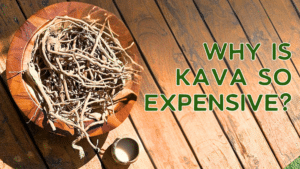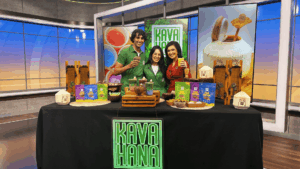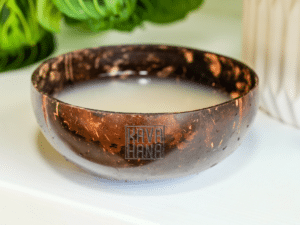Have you ever thought about how wonderful combinations can be?
Peanut butter and jelly. Sugar and spice. Introverts and extroverts.
They can create a flavor, experience, or balance we didn’t expect. This same thing goes for kava. While we love kava for just being kava, we also love to enhance it with other flavors and ingredients.
Our favorite combination is with Matcha.
What is matcha?
Like green tea, matcha comes from the Camellia sinensis plant. However, it has a unique nutrient profile and is grown differently than traditional green tea. Farmers keep matcha plants in the shade for most of their growing period. This boosts the amount of chlorophyll and amino acid content and gives the plant its dark green color.
Matcha is a concentrated form of green tea. It usually comes in a powder whisked into hot water to create a strong, earthy-tasting drink, much like kava. It’s become popular in cafes as an alternative to coffee, mixed with coconut or other milk for added sweetness. It can be made into lattes, teas, matcha shots, and even desserts like matcha cakes and cookies.
Matcha has a slew of different health benefits, including:
- Protecting the liver
- Improving brain function
- Preventing cancer
- Promoting heart health
- Supporting weight loss
These benefits come from the antioxidants and anti-inflammatory properties that are found in the plant. These powerful compounds help reduce cell damage that is responsible for chronic disease. Matcha is also packed with catechins, phytochemicals found in foods and medicinal plants. They act as antioxidants and fight against inflammation, cancer, and obesity.
What is kava?
As many of you know, kava comes from the dried root of the pepper plant, Piper methysticum. It’s grown in the South Pacific and traditionally used for cultural and religious ceremonies and medicinal properties. Today, it’s become popular as a natural solution for anxiety, to help with sleep, and as an alcohol alternative.
Like the catechins in matcha, the active ingredients in kava have benefits. These are called kavalactones, and while there are over 15 known kavalactones, only six are linked to the effects of kava. These act on the calming neurotransmitter in your brain called GABA. Neurotransmitters are chemical messengers that communicate within the brain and to the body. GABA is released when you feel relaxed and calm, which is one of the key reasons you feel this way when you drink kava. And because kava affects how our brains work, it’s called a psychoactive substance, although it’s not a hallucinogen, which is another level of psychoactive. To put it into perspective, coffee is also considered psychoactive because of the caffeine that stimulates the brain and body.
What are their similarities?
Matcha contains caffeine, making it a psychoactive substance, like kava. However, the amount of caffeine is considerably less than in coffee (only about 68 mg per serving compared to around 96 mg per serving of coffee), and it boosts your energy at a slower rate over 4-6 hours. However, matcha is key because it contains high levels of l-theanine, an amino acid that promotes calm and relaxation. Like kavalactones, l-theanine boosts GABA levels, giving you a more relaxed and calm feeling and combating the jittery effects of caffeine.
While it might not seem like a natural combination, matcha and kava are great. They both have earthy tastes, their health benefits are similar, and even how they work in the brain and body is complementary.
This is why our KavaMatcha is our trademark drink. The balance of earthy flavors, combined with coconut milk and the way it affects your body and mind, is a perfect way to enjoy both beverages at once. Not to mention the added health benefits of each, which is a combination that’s hard to beat.
* Please note that the majority of kava research pertains to kava extracts, which often undergo significant processing and may contain additional ingredients and fillers that can influence their efficacy. It is crucial to consider this distinction when reading about kava studies. To draw an analogy, enjoying natural kava as a beverage can be likened to experiencing a freshly brewed cappuccino, whereas kava extracts are akin in functionality to a caffeine pill. Both forms have their unique benefits and can cater to different preferences and needs. While it’s helpful to understand research on kava extracts, please view it critically and remember that natural kava offers a uniquely holistic experience.







